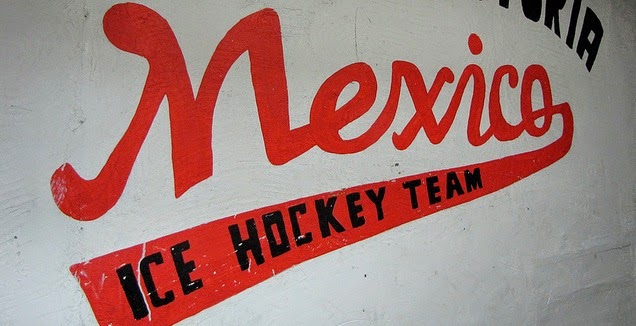From World Politics Review
By David Agren
MEXICO CITY – Federal officials used the word, “Historic,” to describe the May 26 detentions of 28 public officials, including 10 mayors, in the western state of Michoacán for having alleged links to La Familia, a drug cartel known for running extortion rackets, producing methamphetamines and corrupting municipal governments.
Opposition politicians and some political observers, meanwhile, expressed disquiet with the destitutions and questioned the timing of the federal action, which claimed mayors from the three main parties – including a pair from President Felipe Calderon’s National Action Party (PAN) – and came barely five weeks before the July 5 midterm elections. They also noted the arrests coincidentally took place in Calderón’s home state, where the left-wing Democratic Revolution Party (PRD) wields power and the president and the PAN have yet to establish an electoral powerbase.
For his part, PRD Michoacán Gov. Leonel Godoy, who objected to masked federal agents bursting unannounced into state government offices to arrest senior judicial advisers, called the actions, “A hostile act.” He would later say that the federal government never informed him of the crackdown – nor even gave him a courtesy call.
Such is the politically charged state of Mexico’s war on narcotics-trafficking cartels – which has claimed more than 10,000 lives since Calderón took office in December 2006, seen soldiers sent into the streets and left parts of the country virtually ungovernable – that the arrests of allegedly corrupted local officials and the disruption of a cartel-operated influence network descended into a partisan matter.
The arrests continued a string of recent high-profile arrests that have nabbed regional cartel leaders and severely weakened La Familia, a cartel suspected of infiltrating many of the 113 municipal governments in Michoacán. It also followed the arrests of several senior officials in the PAN government of Morelos state for alleged ties to organized crime.
But the Michoacán arrests came during a federal election in which the PAN is gunning for an improbable majority in the lower house of Congress that would allow Calderón to expand on his agenda of economic and public security reforms during the latter half of his six-year term. It would also allow the president to depend less on the Institutional Revolutionary Party (PRI), which has played kingmaker during the three-year legislature the ended regular sessions on April 30 and will be replaced on Sept. 1.
“The president would like to close his administration with more political capital to negotiate with the other parties,” said Pedro Isnardo de la Cruz, a security expert and political analyst at the National Autonomous University of Mexico (UNAM).
But a weak economy appears to have severely diminished PAN political fortunes over the winter. In February, a poll published by the newspaper El Universal gave the PRI a 15-point advantage over the PAN and suggested that the PRI – which has sold itself as an experienced operator in times of economic and public security crises – on the cusp on gaining a majority. Shortly thereafter, the public security issue surged to the forefront, compliments of a series of blistering attacks on the PRI from PAN president Germán Martínez.
Martínez, a close Calderón collaborator and Michoacán native, portrayed the PRI as a half-hearted partner in the war against organized crime for not embracing legislative initiatives presented by the president that included measures for seizing the assets of those affiliated with organized crime, creating a unified federal police force, and making law enforcement at all levels responsible for cracking down on small-time drug dealers. (All three initiatives were eventually approved, but with modifications to address PRD concerns over potential human rights violations and PRI concerns that the federal government was infringing on the jurisdiction of state governments, which are overwhelmingly run by PRI governors.)
But Martínez went further by blaming the escalating drug violence on previous PRI governments that he said had failed to crackdown on narcotics-trafficking cartels and possibly brokered deals to either co-opt the cartels or keep a lid on drug violence.
PRI officials rejected all the allegations of unseemly relations with narcotics-trafficking cartels, but the PAN strategy has revived the governing party’s fortunes and may stop a potential runaway PRI victory. Political science professor Federico Estévez of the Autonomous Technological Institute of Mexico (ITAM) says the PAN attacks hurt the PRI because “the [PRI] National Leadership is wishy-washy on this issue,” and “has talked out of both sides of its mouth.”
The PRI still tops most public opinion polls for the July 5 election, but the race is competitive. A poll published June 9 by El Universal gave the party a five-point advantage over the PAN, while the left-wing PRD ran a distant third at just 11 percent.
It remains to be seen how the politicizing the public security issue plays out, but de la Cruz says the president’s strategy could prove “counterproductive” if state governors from opposition parties shy away fully backing federal initiatives.
“Some governors have let it be known that they’re no longer willing to fight [the war on drugs] with the federal government,” he said.
13 June 2009
12 June 2009
Mexico's drug war turns political
My latest for World Politics Review on how the Mexican government's war on drugs has become a partisan political issue.
Subscribe to:
Posts (Atom)
